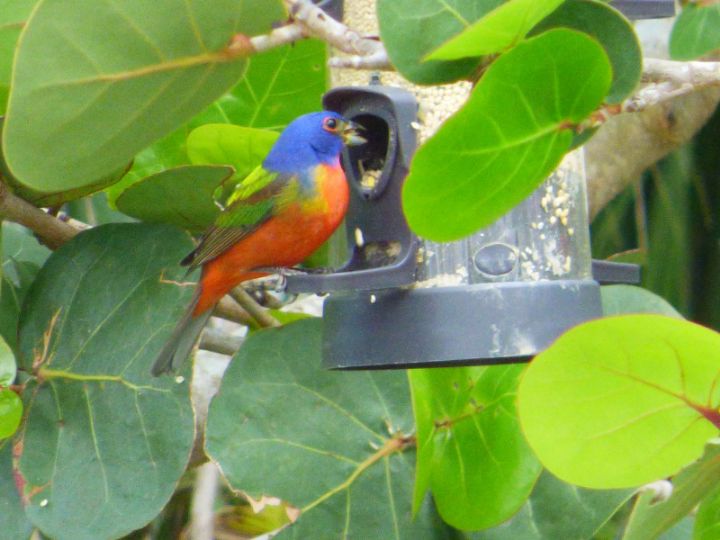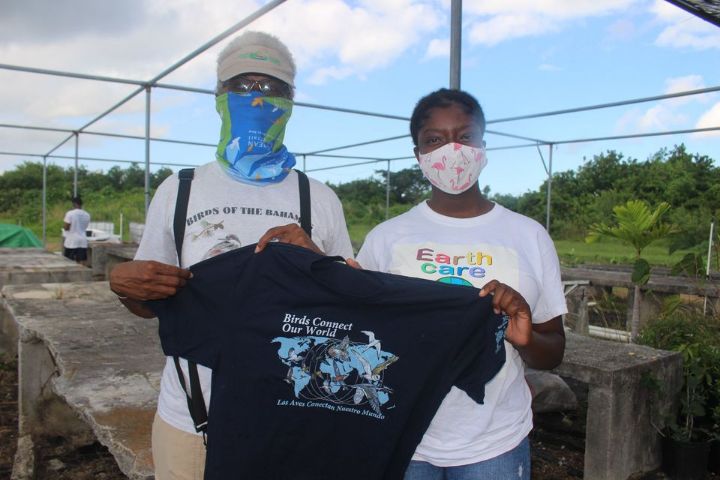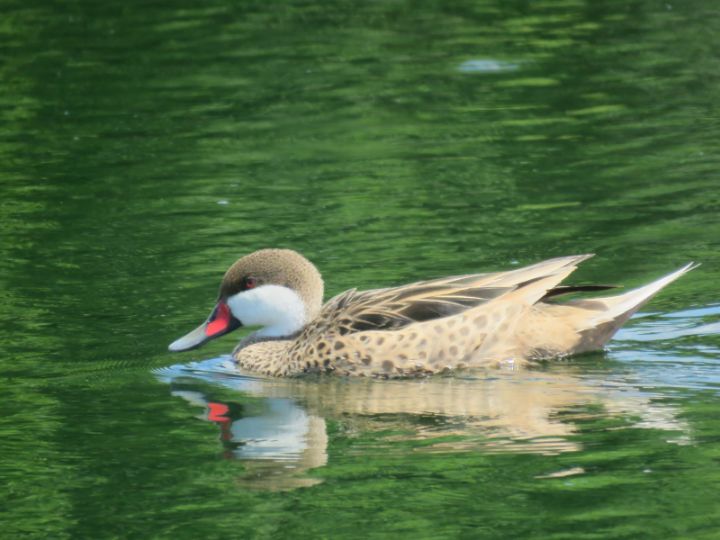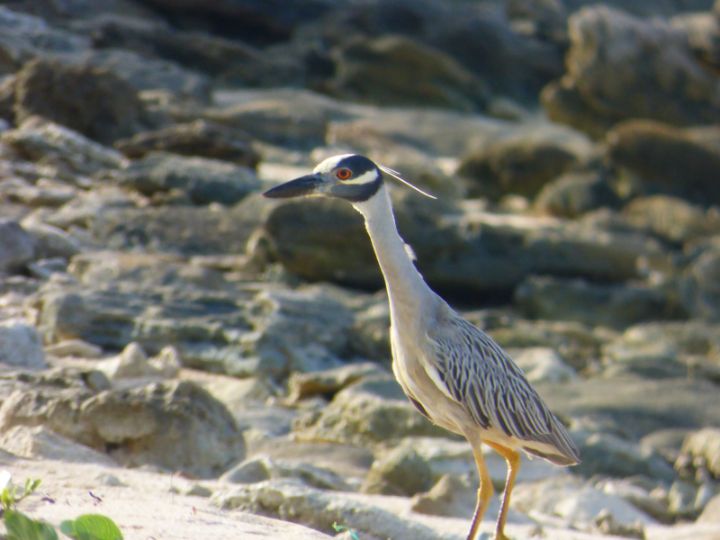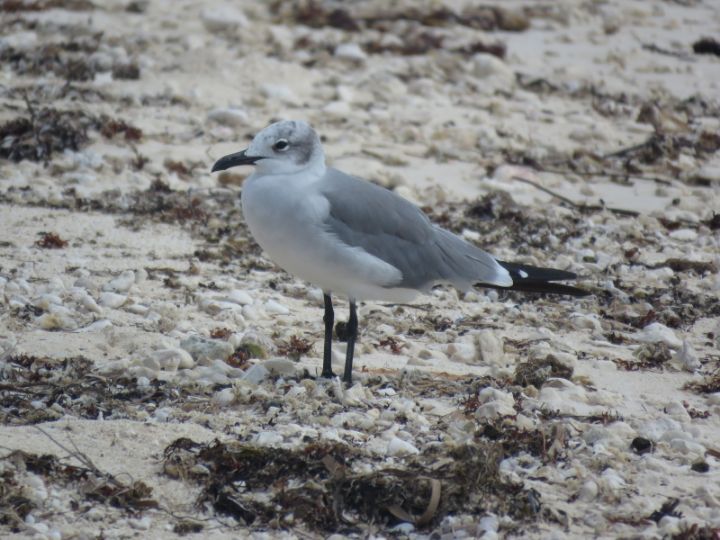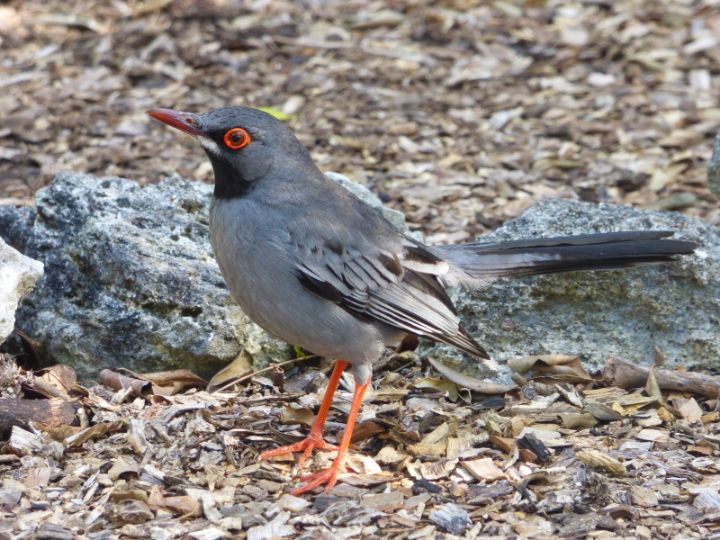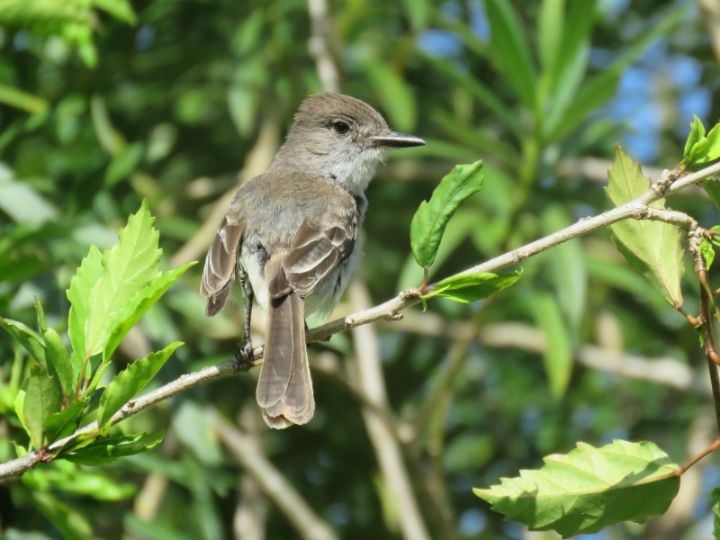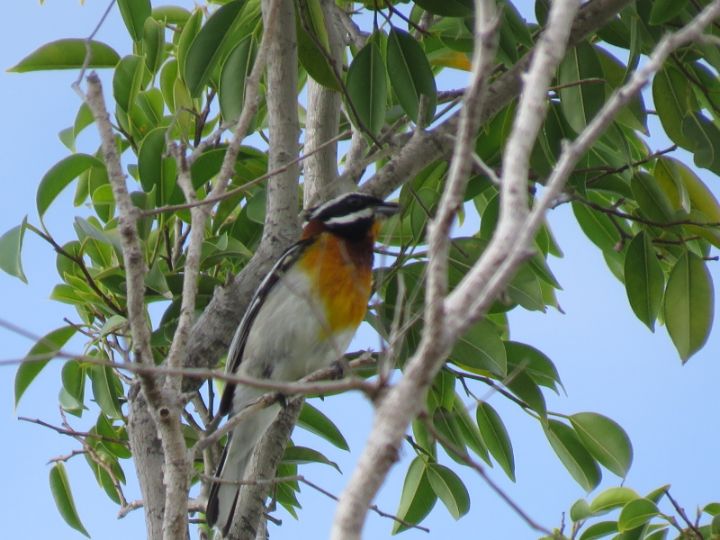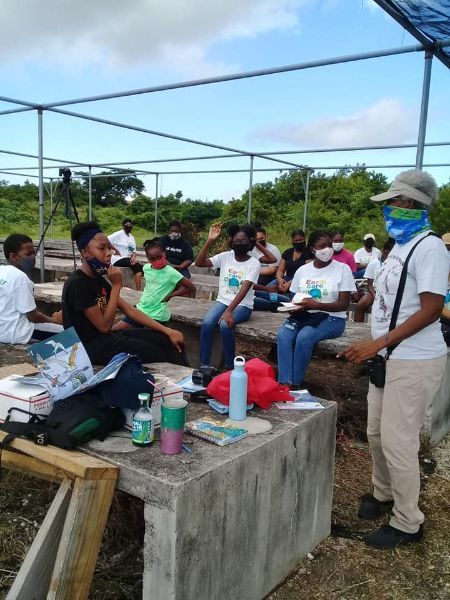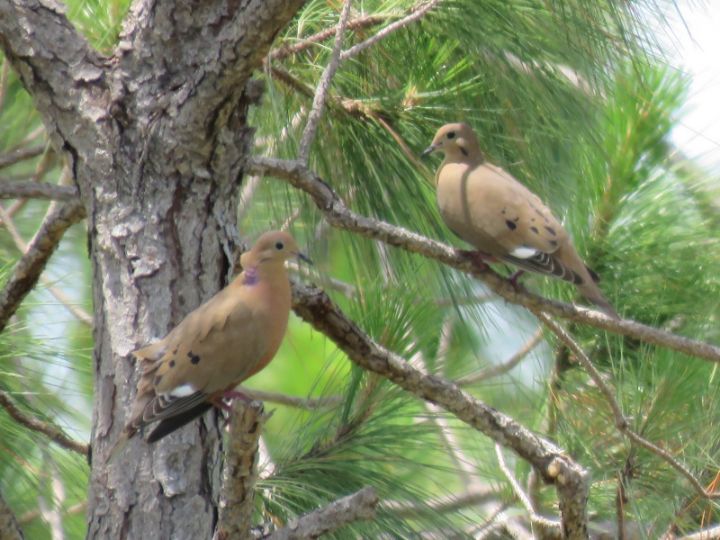|
From:TheBahamasWeekly.com Bahamas Information Services Updates
Grand Bahama Island. After working on Our Garden, Community Garden on Saturday morning, October 31st, 2020, the EARTHCARE Eco Kids and EARTHCARE volunteers on Grand Bahama Island settled in to listen to guest speaker, Bridget Davis, Bird Watching Youth Educator. We were celebrating World Migratory Bird Day. Birds Connect Our World. Bridget Davis teaches the Bird Watching class to youth at the Garden of the Groves. We were honoured to have her come to speak with us. We had surprises and giveaways courtesy of BirdsCaribbean. BirdsCaribbean, formerly the Society for the Conservation and Study of Caribbean Birds, is the largest regional organization dedicated to the conservation of wild birds and their habitats in the insular Caribbean (including Bermuda, the Bahamas and all islands within the Caribbean basin). World Migratory Bird Day highlights the importance of conserving and restoring the ecological connectivity and integrity of ecosystems that support the natural movements of migratory birds and that are essential for their survival and well-being.
Migratory birds are beneficial to us and the planet's ecosystems because they provide critical services such as seed dispersal, pollination, pest control and more. They provide major economic benefits and jobs through tourism, research and education, and leisure activities such as bird-watching and photography. Birds inspire us and help us to connect with each other and re-connect with nature. Bridget Davis told the group, “The world can see what we are doing in The Bahamas. We record our bird sightings on ebird for confirmation purposes to see what birds are still here, what birds we have never seen before perhaps, and just to keep a record of what’s going on during the month of October. That is what the World Migratory Bird Day is all about but you can go birding any time. Has anybody birded before? Did you see a bird today out of your window? You can hear them. I hear some right now in the bush. You can learn what you see and how to identify the birds by the way they look, by the way they sound, what habitat they are in, shorebirds on the beach, seagulls and then you could have birds in the bush, the small birds, warblers the small tiny ones and you can see birds in the air, turkey vultures. Birding is something that you can do during the Pandemic. We record our sightings and important information on ebird. Ebird is a free online web site by Cornell University Ornithology Department. You can attract birds to your yard with bird feeders and bird baths. Just yesterday a beautiful male painted bunting, a winter migrant, came to my bird feeder. When we see birds, we report them to the ebird site and become citizen scientists. Our data is used by researchers all over the world to track migration patterns among other things.”
The flyways used by migratory birds connect different habitats. Migratory birds have evolved incredibly complex migration strategies that require suitable habitats for wintering, stop-over and breeding sites that are crucial for their survival. Flyways transcend national borders, national plans and conservation priorities of any single country. Migratory birds connect countries and their conservation requires cooperation and coordination between countries and across national boundaries as they pass on their journeys. Migratory birds rely on their natural habitats for food, shelter and nesting. Unsustainable farming has become a threat to the survival of migratory birds. Natural habitats that have their natural food sources are shrinking. Pesticides are dangerous and sometimes fatal for migratory birds. Encroachment of habitat also increases the risk of illegal killing, taking, trade and overexploitation of migratory birds. Pollution is another threat to migratory birds.
Migratory birds need a network of intact habitats along their entire migration routes to survive. Increased global action through multilateral environment treaties such as the Convention on Migratory Species (CMS) and the African-Eurasian Waterbird Agreement (AEWA) is essential to protect migratory birds on their international journeys. Creating protected trans-boundary habitat corridors would be of great benefit to migratory birds and other migratory wildlife, specifically at the landscape scale. What You Can Do: Make your garden bird-friendly! Include safe shelters and a bird bath. Make sure that food that is provided is bird-safe and does not cause malnutrition. Pets are part of our lives, but they can have very negative impacts on birds. Keep an eye on your pets, and make sure any bird areas are out of reach for cats and dogs. Tell others about the importance of protecting migratory birds and the habitats they need to survive. Write an article, give a presentation or organize an event to help raise awareness.
Download and use birding apps. After all, not only do Birds Connect Our World, but they also connect us as individuals. Together, a great deal can be accomplished. Gail Woon, EARTHCARE Founder, commented, "EARTHCARE Team Leader, Shakada Hutson, an accomplished birder, presented our Speaker, Bridget Davis with an official World Migratory Bird Day 2020 shirt as thanks for giving us all of her knowledge about birds today.” The group was engaged and many of the EARTHCARE Eco Kids won pins, bracelets, T shirts and BirdsCaribbean Tote Bags for answering a fun round of trivia questions on our Birds. EARTHCARE was proud to be able to participate this year in World Migratory Bird Day 2020 because in 2019 after the Island of Grand Bahama was devastated by Climate Changed Hurricane Dorian, we were not able to participate because virtually everyone was in survival mode then. Participants were able to sign up for future bird watching classes. EARTHCARE audience members included: Iram Lewis, Gail Woon, Requal Davis, Nathanael Smith, Leah Davis (1 year old), Tyler Riley, Daphne Riley, Patrizia Palmarini, Deborah Russell, Shakada Hutson, Miquel Sweeting, Micara Sweeting, Arianna Laing, Marcia Winder, Gabby Winder, Trinity McIntosh, Rihanna Smith, Natesha Simmons, Josiah Smith, Jonathan Smith, Tyrie Moss, Latoya McKenzie, Joanna Parker and Theo Parker. EARTHCARE expresses sincere gratitude to all of the participants.
|
